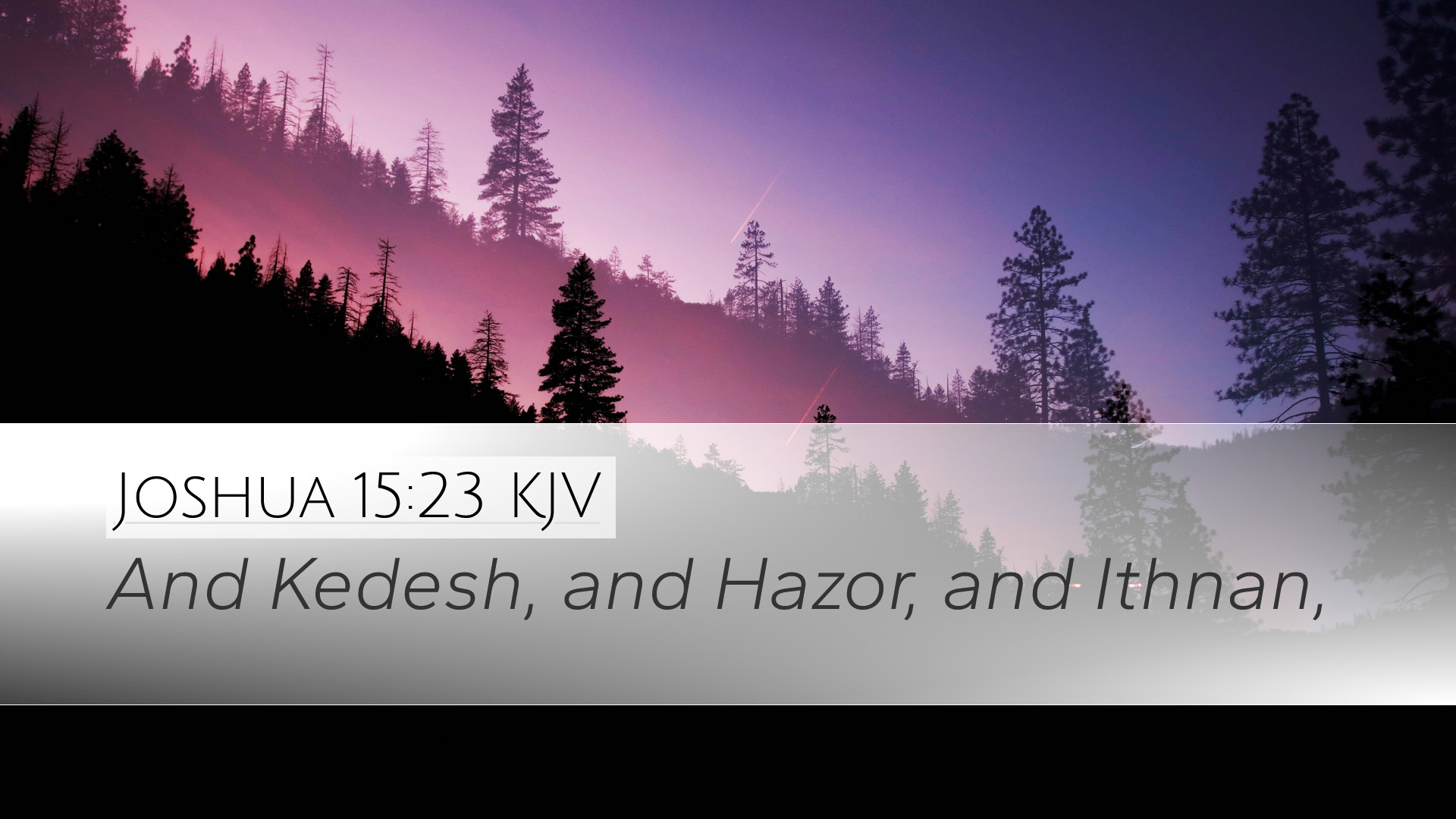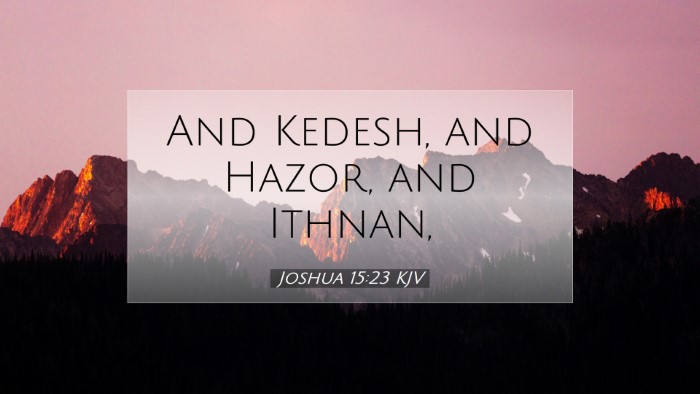Commentary on Joshua 15:23
This verse falls within the context of the division of the land among the tribes of Israel, providing insights into their historical and geographical significance. It is crucial for understanding both the physical and spiritual inheritance that God designated for His people.
Text of Joshua 15:23
"And the cities of Judah were twenty and nine, with their villages."
Contextual Background
The book of Joshua describes the conquest and settlement of Canaan, highlighting the faithfulness of God in fulfilling His promises to Israel. The division of the land, especially focusing on Judah, indicates both the importance of this tribe and its strategic role in the history of Israel.
Insights from Commentaries
1. Historical Significance
According to Matthew Henry, the enumeration of cities serves not only to provide a record of the regions conquered but also to emphasize the blessings bestowed upon the tribe of Judah. The number 29 reflects the completeness of God's provision for His people, as it signifies both abundance and order in the distribution of the land. This highlights God’s faithfulness in fulfilling His promises to the descendants of Abraham, Isaac, and Jacob.
2. Theological Implications
Albert Barnes notes that the cities allocated to Judah are an illustration of divine sovereignty in human affairs. The specific mention of the cities demonstrates God’s detailed providence, ensuring that His people receive their rightful inheritance. These locations held significant spiritual meaning as they were to be places of worship and community, forging a strong identity for the tribe within the greater nation of Israel.
3. Geographical Considerations
The geographical territory of Judah was especially distinctive. As Adam Clarke expounds, the land allocated to Judah included prominent cities, showcasing its importance as a central hub. This allocation underscores the tribe’s prominence, which is later reflected in the lineage of King David and ultimately in the lineage of Jesus Christ. The mention of "villages" further emphasizes the agricultural prosperity and the domestic life of the people living in these cities, highlighting social structure and community.
The Role of Judah
The tribe of Judah was not only the largest in population but also held esteemed leadership in Israel. Each city and village mentioned in this verse signifies the broader mission of Judah to maintain covenant fidelity to God and to serve as examples of faithfulness to other tribes.
Contrast with Other Tribes
In contrast to other tribes who received lesser portions or cities classified as outliers, Judah’s allocation was significant, reinforcing its leadership role in Israel. Matthew Henry elaborates that the larger inheritance was a reflection of God's honor towards Judah, calling attention to their role as a forerunner in worship and leadership.
Spiritual Lessons
From verse 23, we derive important spiritual teachings that can apply to modern believers:
- Divine Provision: Just as God provided for Judah, He continues to provide for His people today, assuring that our needs are met according to His riches in glory.
- Covenant Faithfulness: The faithfulness of God in delivering on His promises serves as a poignant reminder for believers to trust in His covenant, despite circumstances.
- Community and Heritage: The significance of the cities symbolizes the importance of community within the church, where believers gather for worship, support, and shared mission.
Conclusion
Joshua 15:23 not only provides a historical account of the allocation of land but also opens the door for deeper theological reflection on God's promises, providence, and the call to community among His people. As we study this verse, we are reminded that our spiritual inheritance in Christ calls us to live faithfully, engage in worship, and foster community, just as the tribe of Judah was called to do.


